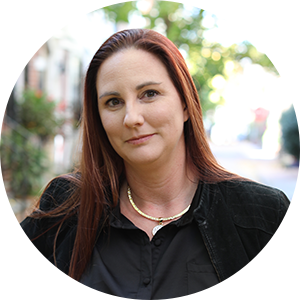For attendees of the Association to Advance Collegiate Business School’s International Conference and Annual Meeting (ICAM 2023) in Chicago last week, discussions in and out of the session halls centered on the drastically changing landscape of higher education, specifically the rise of artificial intelligence, the power of Gen-Z students and the ethical implications of partnering with online program management providers in a virtual-first world.
3 Takeaways from ICAM 2023
ChatGPT, Gen Z and OPMs were the primary focus during AACSB’s ICAM 2023 in Chicago. Change is at hand, but are we prepared to embrace it?

(1) Artificial intelligence and ChatGPT have every person that makes or needs content concerned, including those in higher ed.
As Emily McMahon from Eduvantis noted, “A couple of these mega trends that we are seeing right now, such as Chat GPT and privacy browsing are changing the landscape rapidly and in ways that are hard to predict.”
However, the beauty of higher education is its ability to incorporate and evolve any technology to fit the industry, albeit slowly–what some have likened to turning an iceberg. I am sure conferences in the mid-90s dealt with the proliferation of the internet and how it would impact higher education.
The internet has drastically altered the course of education, primarily granting access to those previously excluded from the hallowed halls of brick-and-mortar institutions. AI and writing programs will be similarly impactful, once the technology is developed further.
“ChatGPT, at least in its current iteration, has significant limitations,” said McMahon. “It cannot understand what is true and what is not true; you still have to fact-check that answer. It also does not have current information; it was trained on a database that only goes through September 2021.”
ChatGPT and similar AI programs will most likely be here to stay, and higher education must adapt. If the interest and discussions at ICAM are indicators, higher-ed leadership is already determining how to utilize the new technology while maintaining academic honor codes and allowing students access to the potential benefits of AI. Higher ed will adapt to AI in its own way–eventually.
(2) Current Gen Z and upcoming Gen Alpha students are breaking the mold with everything they touch, and leaders are scrambling to switch gears while running full steam ahead. Given their status as the generations who grew up embroiled in social media and the digital world, it is unsurprising that these students perceive education and the world differently than those who preceded them.
“Gen Z is a group that is searching for purpose,” said Bill Imada, the chief connectivity officer with IW Group Inc. “They are looking for guidance and ideas; they want to find a way to find their place in the world, in the communities and countries where they live; and they want to have an impact, but they want to do it with a level of transparency and authenticity.”
Enter Felicia Urban, a Gen-Z student at the University of Texas at Arlington, who sat on a panel with Imada and Christine van den Toorn, the founder and director of Baghdad Business School. Speaking about “building a culture of purpose for students,” Urban quickly stole the spotlight from her fellow panelists, fielding nearly every question in the Q&A period.
“People come to my university with the hope that getting a degree will drastically change their lives and their families’ lives,” said Urban. “With that in mind, it is so important for universities to create an environment where they can find their purpose as they mature.”
Urban admitted that she was never part of the 20% of students who are engaged with their institutions’ cultures from the beginning of their attendance. It took her years to find her purpose while navigating college. Her insights into what makes a student want to be connected to their institution were beyond previous generations’ interest in making money and gaining status. Instead, she noted that genuine attempts to do good in the community and desires to change the world are key.
“When you find your purpose inside the classroom–using those skills you learned–you have a better experience outside of the classroom,” said Urban.
(3) Online program management systems need to be re-evaluated. At what point does third-party monitoring or content devalue an institution’s credentials? Three short years ago, every institution in the country–nigh, the world–had to offer virtual classes to keep the doors open and continue teaching through the pandemic. In doing so, higher ed opened the door to partnerships with online program management systems to provide course content and evaluation parameters.
Such partnerships were developed quickly during a time of need, but schools are now rethinking the ethical implications of outsourcing critical information that is at the heart of education. According to Jeffrey Brown and H. Rao Unnava, there is a fine line between allowing a third-party OPM to provide a curriculum framework and allowing the same OPM to design and teach the curriculum.
“In the middle of February, the Department of Education made a surprise announcement that they wanted to look a little more into OPMs; they wanted to do audits,” said Brown. “They wanted to see data submitted to the Department of Education.”
Brown, who is the dean of Gies College of Business at the University of Illinois at Urbana-Champaign, noted that this decision harkened back to a 2010 attempt to stem predatory practices by declaring no private, third-party entity could receive compensation for enrolling people in these programs. The following year, an exemption was made to allow OPMs to garner a share of tuition revenue if the programs bundled services beyond recruitment and enrollment.
If the questions asked by the audience during Unnava and Brown’s presentation are any indication, much of the pushback from partnering with OPMs and providing virtual courses is from faculty not wanting to teach and grade classes differently. Brown remarked that the university provided a monetary incentive for the faculty to participate. His institution’s OPM partner collaborated with the faculty to develop virtual coursework, essentially rebuilding current curricula in a virtual environment.
Unnava, who is the dean of the University of California Davis Graduate School of Management, corroborated Brown’s assertion that not all faculty want to invest the time and effort to rebuild their established courses. The UC system is one of the largest OPM clients in the country, which is a bit surprising given the University of California’s February decision to ban fully online degrees.
Both presenters indicated that their institutions implemented teams of professors to “rebuild” each class to fit a virtual model in the OPM, which helped to remove the burden from just one person. The dedicated time and effort to rebuild an established course in the virtual platform could be of benefit to all students because coursework needs to be reevaluated for timeliness and relevance, which should filter to in-person courses.
Newsletter Sign up!
Stay current in digital strategy, brand amplification, design thinking and more.
Recent in Education Administration
Also in Education Administration

DOE Secretary Linda McMahon already imposed mass layoffs. What’s next?
Before following President Trump’s direction to ‘put herself out of a job,’ the former wrestling matriarch has other ideas and wants Congress to give her a hand.

Higher ed faces a crossroads over Trump’s executive orders on DEI.
Legal experts and educators debate the future of diversity initiatives in the wake of new federal directives.

Higher ed administration gets AI boost.
Working through legitimate concerns, higher ed leaders are finding dynamic ways to integrate AI technology across campus offices.





